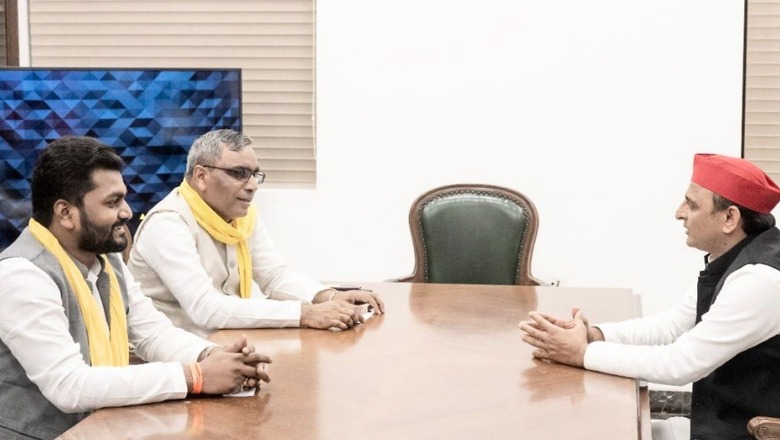
views
German economist E.F. Schumacher had argued a few decades ago that ‘small is beautiful’, challenging the ‘big is better’ notion. While Schumacher’s arguments were in the realm of economy and use of technologies, this phrase is quite relevant in the context of Uttar Pradesh Assembly elections too.
Every big political party in Uttar Pradesh seems eager now to form alliance/s with small parties. But why?
To find an answer to this question, we will have to trace the journey of backward castes in India. The implementation of the Mandal Commission report is a watershed moment—it gave rise to social justice politics and inspired various backward communities to assert themselves politically.
In democracy, numbers are the real strength and that’s why numerically strong castes and communities have dominated social justice politics in India since the last three decades. Among backward communities, dominant castes like Yadavs and Kurmis claimed a large share of political power in democratic politics.
ALSO READ | UP Next: Caste Census Demand Reflects the Crisis in India’s Social Justice Politics
After a while, some other backward and most backward castes, who had a sizeable population, slowly acquired the capacity to assert themselves politically. In terms of political domination, they are still not as strong as Yadavs or Kurmis. Their assertion comes from a sense of deprivation or marginalization in politics as well as social and economic development. Some of these backward castes are Nishads, Koris, Rajbhars, among others.
Over a period of time, the leaders of these communities have managed to mobilize the members—this, in turn, is leveraged to negotiate with bigger parties for political space. This also explains the emergence of many caste-based parties in states like Uttar Pradesh and Bihar.
These political parties promise the support of their own jat-biradari to the bigger political parties—the Bharatiya Janata Party (BJP), the Samajwadi Party (SP) or the Congress—by forming alliances with them, especially in the run up to elections. However, it is interesting to note that Mayawati-led Bahujan Samaj Party (BSP) has usually refused such alliances with smaller caste-based parties in UP.
These smaller parties offer their (as well as community’s) support as ‘subsidiary’ caste to the dominant caste, which is represented by the bigger political party. These parties, in return, ask for some strategic seats and ministerial berths in the government. They also demand democratic benefits—development projects—for the members of their castes and communities.
Here, the votes by supporters of these small caste-based parties work as ‘stepney votes’—because on their own, they cannot ensure the winnability of a candidate, but when coupled with the support base of the larger political party, they can help in clinching a few seats. In general parlance, the leaders and supporters of these small parties like to call themselves ‘kingmakers’.
The Nishad Party led by Sanjay Nishad claims support of Nishad caste members in UP; Mahan Dal of Keshav Dev Maurya claims support among Mauryas, Shakyas, Sainis and Kambojs; the Suheldev Bharatiya Samaj Party (SBSP) led by Om Prakash Rajbhar claims the support of Rajbhar caste.
Ahead of the Assembly election in 2022, Akhilesh Yadav-led Samajwadi Party, known for working along the Muslim-Yadav axis, seems keen to form alliance/s with such small caste-based parties in UP. The SP has announced an alliance with the Mahan Dal and recently with the Suheldev Bharatiya Samaj Party (SBSM).
ALSO READ | UP Elections: In Akhilesh Yadav-Om Rajbhar Alliance, Asaduddin Owaisi Could be the Loser
The SBSM’s vote base, which is essentially Rajbhars, constitute not more than 2 per cent of UP population. They are largely settled in a few districts of eastern and central Uttar Pradesh. It is in these districts where the SP would hope to gain.
Similarly, Maurya, Kushwaha, Shakya, Saini voters enjoy electoral heft in at least 10 districts of Uttar Pradesh. The strategy of Samajwadi Party is to gain the support of these castes even as it hopes to hold on to its traditional Muslim-Yadav base.
This also answers our question why big political parties in UP are keen to form electoral alliances with smaller caste-based parties.
Badri Narayan is professor and director of GB Pant Social Science Institute, Prayagraj, and the author of ‘Republic of Hindutva’. The views expressed in this article are those of the author and do not represent the stand of this publication.
Read all the Latest News , Breaking News and IPL 2022 Live Updates here.



















Comments
0 comment